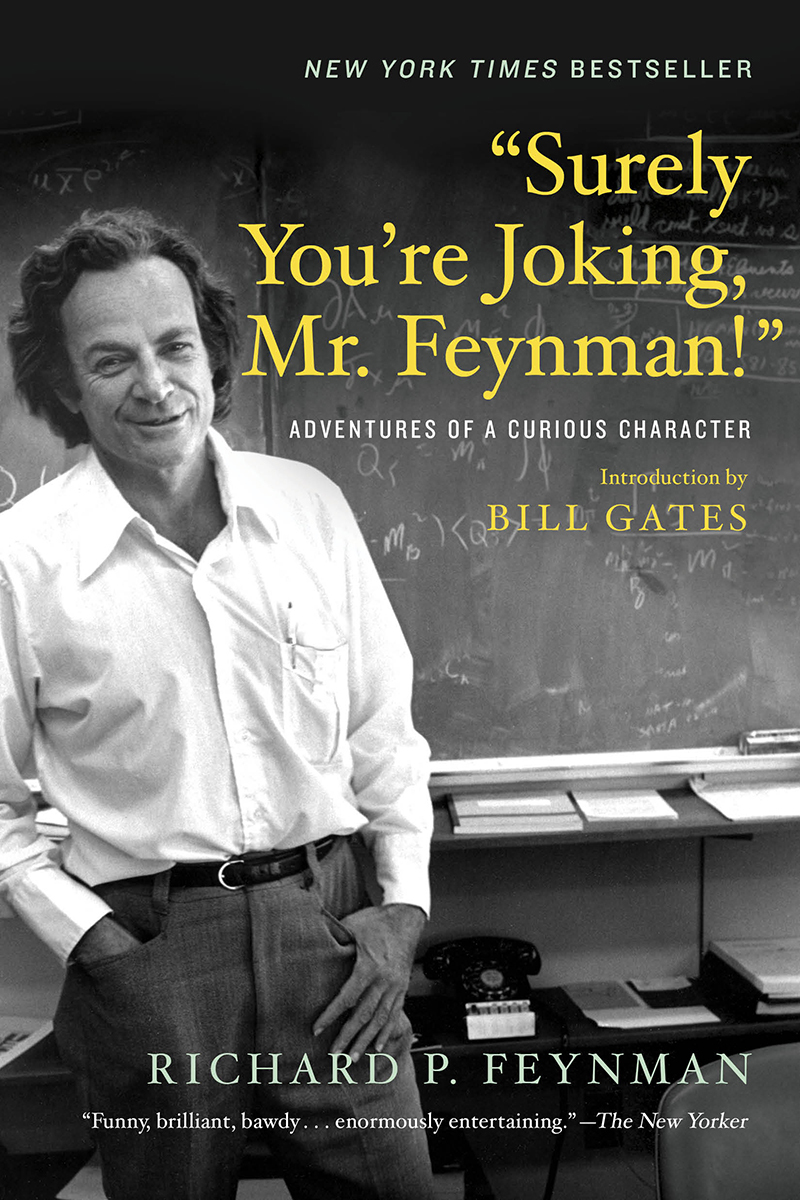Surely you're Joking Mr Feynman

Adventures of a curious character
Richard P. Feynman
Published: 1985
ChatGPT's summary
Overview:
This is not a traditional autobiography, but rather a collection of anecdotes and stories from the life of Nobel Prize–winning physicist Richard Feynman. It captures his curiosity, mischievous humor, and iconoclastic personality, offering a glimpse into the way he thought about science, learning, and life.
The title comes from a story where a prim woman at Princeton, shocked that Feynman would want both lemon and cream in his tea, exclaimed: “Surely you're joking, Mr. Feynman!”
Main Themes and Stories:
🔬 Curiosity and Playfulness
- Feynman shares how his love for tinkering, picking locks, and solving puzzles influenced his scientific mindset.
- He took apart radios as a child, cracked safes at Los Alamos during the Manhattan Project, and learned to draw, drum, and even pick up women—all for the joy of learning.
🎓 Against Authority and Pretension
- Feynman hated academic arrogance and questioned anything that didn't make sense to him—whether it was in science, education, or social norms.
- He often pokes fun at pseudo-intellectuals, over-formal education, and bureaucracies.
💣 Work on the Manhattan Project
- He recounts his time at Los Alamos, working on the atomic bomb. While the project was serious, Feynman found ways to amuse himself by picking locks and teasing security measures.
🏆 Nobel Prize and Scientific Integrity
- He downplays his Nobel Prize and emphasizes the importance of honesty in science—never fooling yourself or others.
- He critiques the culture of scientific prestige and insists that understanding and discovery should be the goal.
💡 Learning as a Joy
- Feynman passionately believed that learning is fun. He taught himself Portuguese, became proficient in bongos, and even studied biology just for the challenge.
- His attitude was: if you're curious, you can learn anything.
Why It’s Loved:
- It’s funny, deeply human, and inspiring.
- Feynman comes across as brilliant yet down-to-earth, always questioning, experimenting, and laughing along the way.
- It appeals to scientists and non-scientists alike because it celebrates intellectual curiosity over credentials.
Who Should Read It?
- Anyone interested in science, critical thinking, or how creative minds work.
- Especially good for students, engineers, scientists, or those who love memoirs of unconventional people.